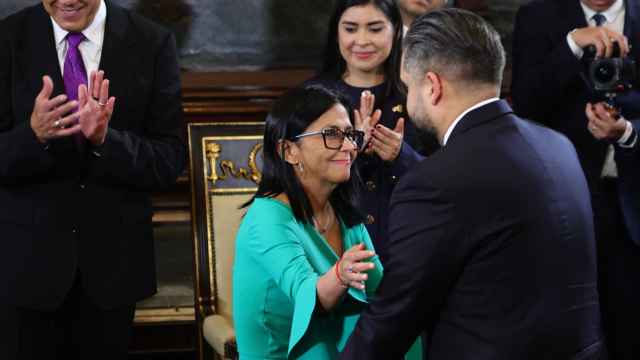BERLIN — German Foreign Minister Frank-Walter Steinmeier will travel to Moscow on Tuesday for the first time since the Ukraine crisis erupted in February for talks on the escalating conflict in the former Soviet republic.
Steinmeier's spokesman Martin Schaefer told a government news conference that the minister would spend the morning in Kiev before traveling on to Moscow.
The visit comes amid rising violence in eastern Ukraine and renewed accusations that Russia is sending soldiers and weapons to help separatist rebels, threatening a fragile cease-fire.
"The German government is watching the situation with great concern," said deputy government spokeswoman Christiane Wirtz.
In addition to the Ukraine crisis, Steinmeier's talks in Moscow may also focus on efforts to secure a deal on curbing Iran's nuclear program by a Nov. 24 deadline.
Six world powers — Britain, China, France, Germany, Russia and the U.S. — are negotiating with Iran in the hope of clinching an agreement that ensures the program is not used for military purposes. Iran says its nuclear work is for civilian needs.
"We are pleased that in these talks there is a constructive, useful exchange with Russia. And we hope that this remains so until the end of the talks," said Schaefer.
He did not rule out pushing the deadline back again, but added: "At the end of the day all participants, first and foremost Tehran, need to explain why delaying the decisions that need to be reached in Tehran will increase the chances of getting a good negotiating result."
"It's clear that if we don't have a solution by Nov. 24 the international pressure from many sides will increase again and it is questionable whether the chances of an agreement will improve."
A Message from The Moscow Times:
Dear readers,
We are facing unprecedented challenges. Russia's Prosecutor General's Office has designated The Moscow Times as an "undesirable" organization, criminalizing our work and putting our staff at risk of prosecution. This follows our earlier unjust labeling as a "foreign agent."
These actions are direct attempts to silence independent journalism in Russia. The authorities claim our work "discredits the decisions of the Russian leadership." We see things differently: we strive to provide accurate, unbiased reporting on Russia.
We, the journalists of The Moscow Times, refuse to be silenced. But to continue our work, we need your help.
Your support, no matter how small, makes a world of difference. If you can, please support us monthly starting from just $2. It's quick to set up, and every contribution makes a significant impact.
By supporting The Moscow Times, you're defending open, independent journalism in the face of repression. Thank you for standing with us.
Remind me later.





